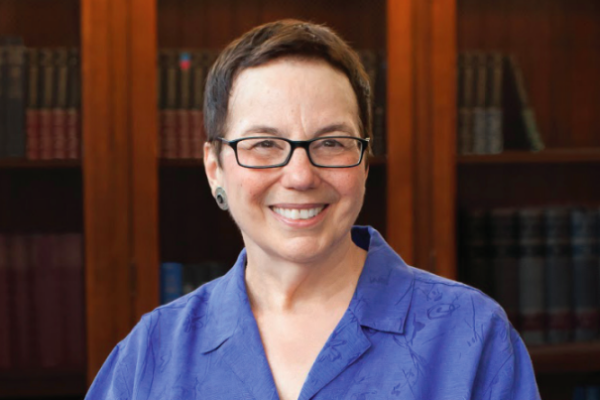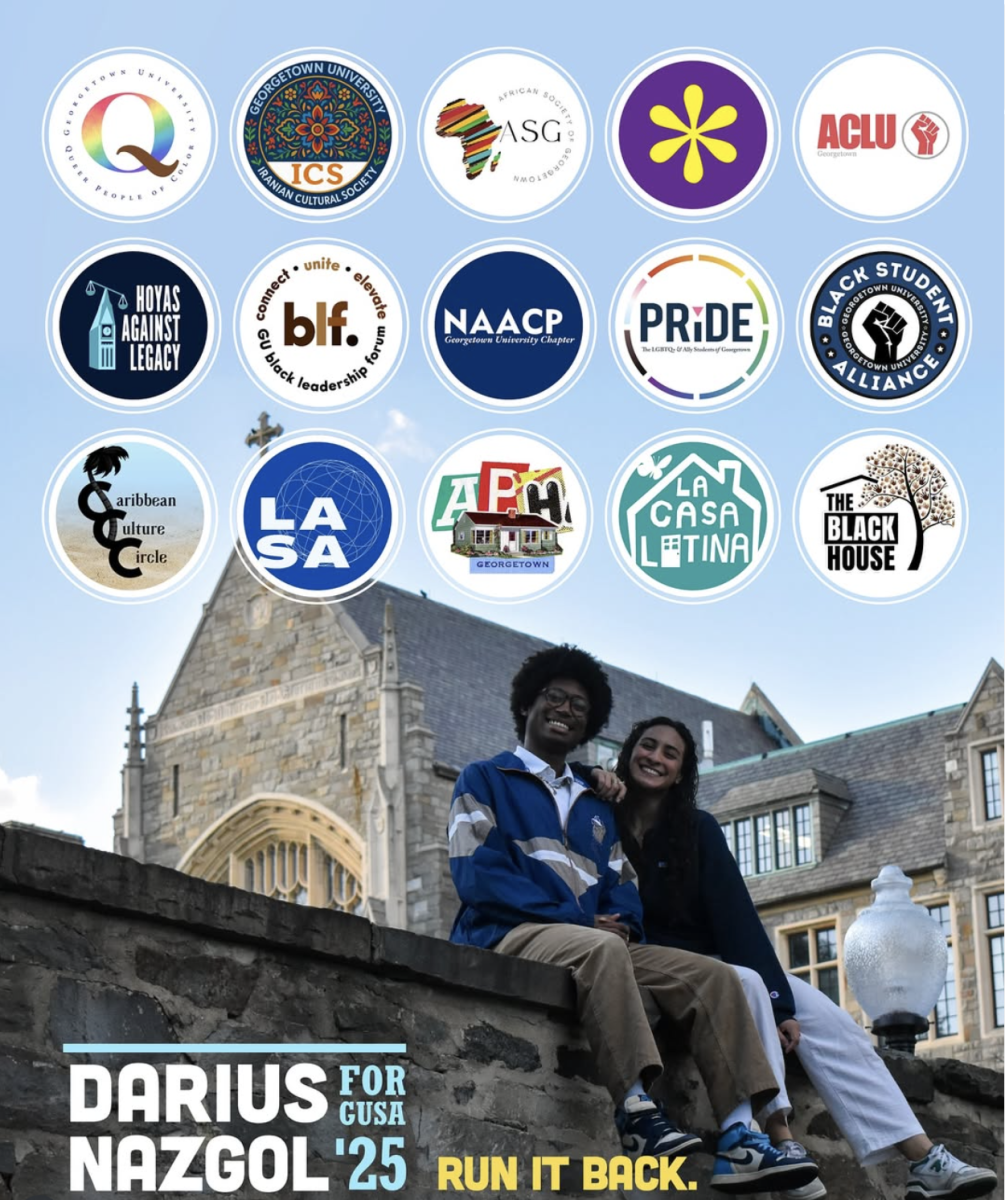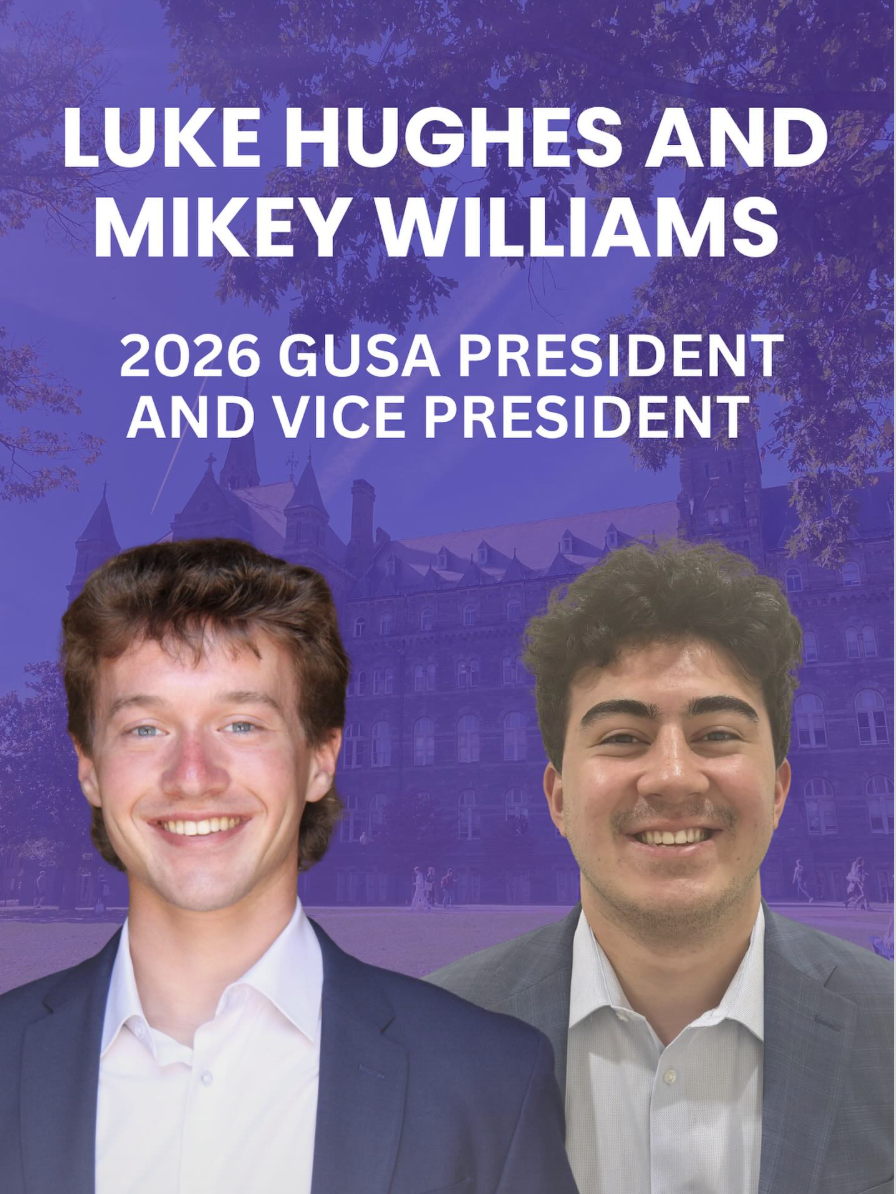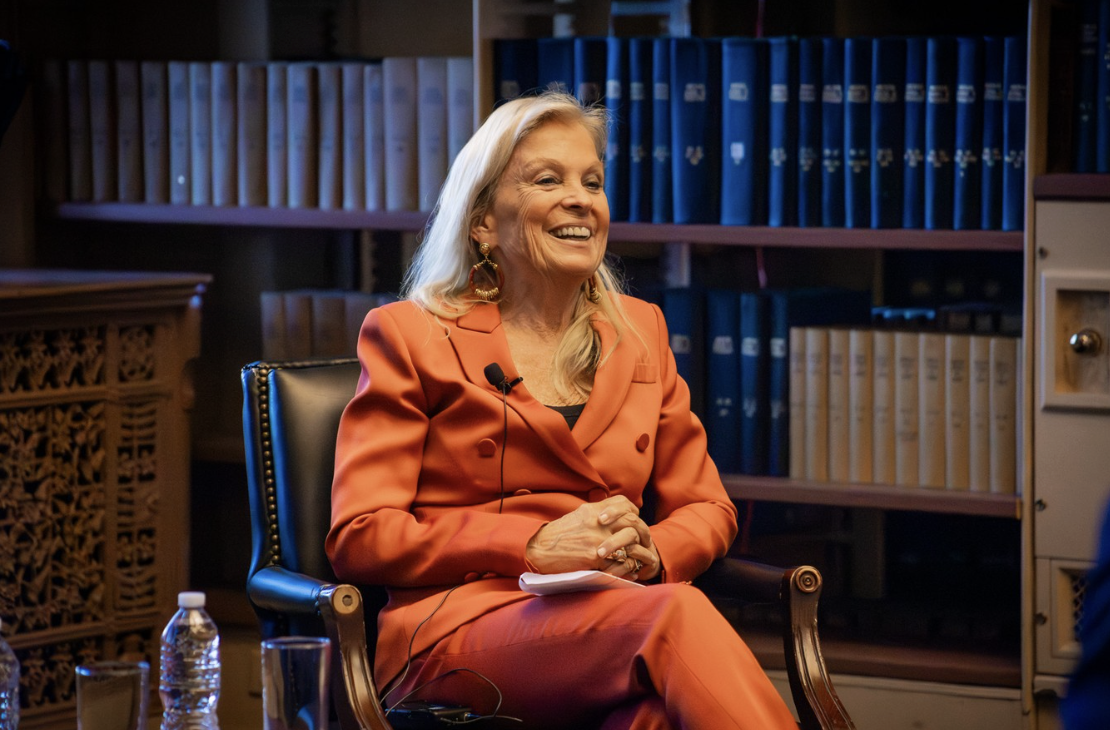Harriette Hemmasi, dean of Georgetown University’s main campus libraries, will retire Aug. 29 according to a Jan. 14 email Interim Provost Soyica Diggs Colbert (COL ’01) sent to university faculty and staff.
Hemmasi worked on various projects during her tenure, including expanding the collections of Lauinger Library (Lau) through collaborations with outside organizations, piloting diversity, equity and inclusion initiatives and supervising library renovations. Upon her retirement, Hemmasi will have spent more than seven years at Georgetown, ending her 27-year career in library administration.

Hemmasi said that Lau staff have persevered in an effort to continue serving students, even through challenges including the COVID-19 pandemic.
“I’m very proud of the library’s commitment to student success and the many other ways in which the library supports the University’s academic programs and mission,” Hemmasi wrote to The Hoya. “Despite the challenges of COVID and frequent budget constraints over the past few years, library staff have consistently provided high-quality, personalized services to students, faculty and community members.”
Colbert said Hemmasi worked to make the university’s libraries best serve students and staff.
“Since joining Georgetown in the fall of 2018, Dean Hemmasi’s goal has been to enhance library services, collections and spaces so that they align with the evolving academic needs of Georgetown faculty and students,” Colbert wrote in the email.
Hemmasi worked extensively with the Maryland Province Jesuits to integrate the holdings of the Woodstock Theological Library, which contained the archives and books of the former Jesuit-run Woodstock College, into Lau’s collection. She monitored the project as more than 14,000 rare materials were moved from the lower levels of Lau to the Booth Family Center for Special Collections on the fifth floor for preservation, while more than 125,000 books were integrated into Lau’s collection.
Beth Marhanka, the library’s head of outreach and engagement, said Hemmasi’s work ethic contributed to the library’s mission.
“She is pragmatic, user focused and has a hands-on approach that I admire,” Marhanka wrote to The Hoya. “Renovation plans for the Pierce Reading Room on the third floor of Lauinger were already underway before Dean Hemmasi joined Georgetown, but she played a key role in relocating staff to the lower level of the library to make space for the expansion. Harriette was also a strong advocate for incorporating a Digital Lab with a large-format video wall for interactive learning into the space.”
Colbert said Hemmasi set out to improve library systems to serve students in the 21st century.
“Dean Hemmasi has reorganized library divisions and strengthened its capacity to support research including digitally-enabled scholarship, initiated the library’s first DEI committee in coordination with the Office of Institutional Diversity and planned for operations at the newly expanded Capitol Campus,” Colbert said.
Sharon Clayton, the university’s science liaison and reference librarian, said she appreciated Hemmasi’s emphasis on inclusivity.
“I’m new at Georgetown, having just started in Research Services in August,” Clayton wrote to The Hoya. “I truly appreciated Harriette’s warm welcome to me, and how she always looped me into discussions relevant to my work and allowed me to have a voice.”
Hemmasi integrated a collection from the Kennedy Institute of Ethics into the Bioethics Research Library and assisted with the Marino Family International Writers’ Academic Workshop.
Hemmasi said the library has made efforts to support new technological capabilities under her tenure.
“The library has increased its capacity to support digitally enabled and data-driven scholarship, while also continuing to offer an evolving array of digital media equipment and training, and unique making and learning experiences in the Maker Hub,” Hemmasi wrote. “Most recently, library staff have joined others on campus and beyond to explore the efficacy and capabilities of artificial intelligence, and the staff are providing students with introductory workshops in evaluating and using these early iterations of generative AI.”
Before coming to Georgetown, Hemmasi worked in university library leadership at Brown University, Indiana University, Bloomington and Rutgers University.
Hemmasi said she hopes the Georgetown library will continue to serve students’ diverse and ever-changing needs.
“My hope is that the library will continue a proactive approach to creating, promoting and assessing its resources and services by conscientiously seeking student and faculty input and by responding, as possible, to their evolving needs and preferences,” Hemmasi wrote.
“The library is here for you — and we want to know how to engage with you in more helpful, meaningful ways. The library’s and Georgetown’s future is bright and I’m so thankful to have had the opportunity to share this time together,” she added.







